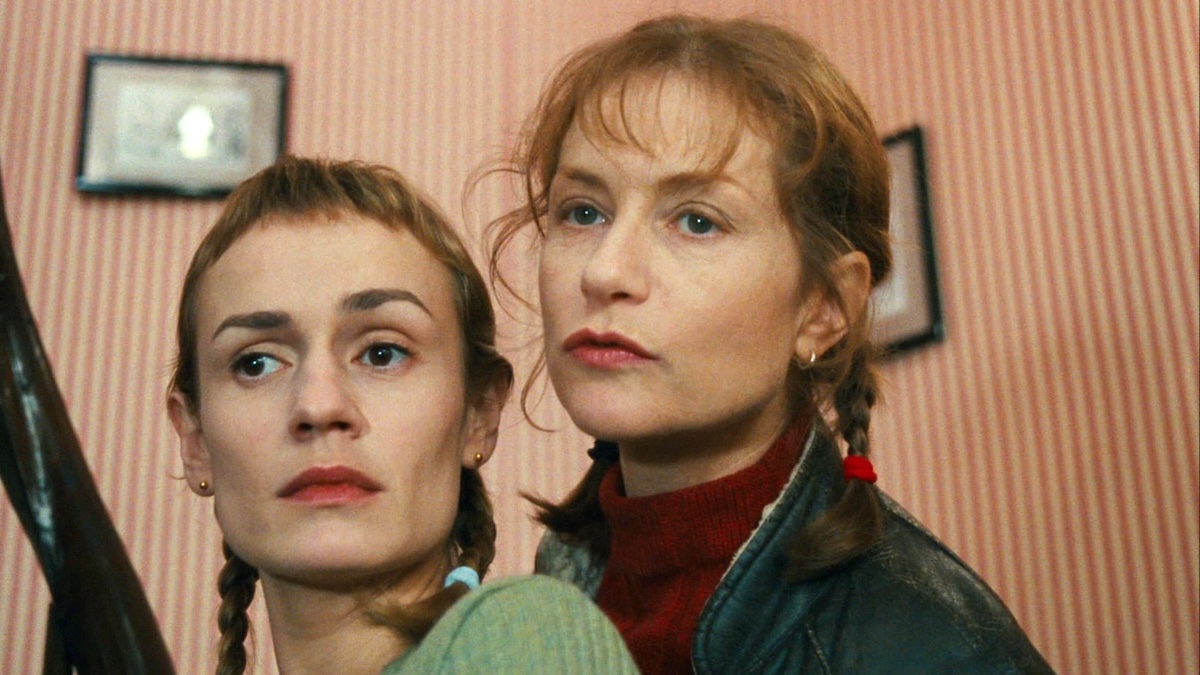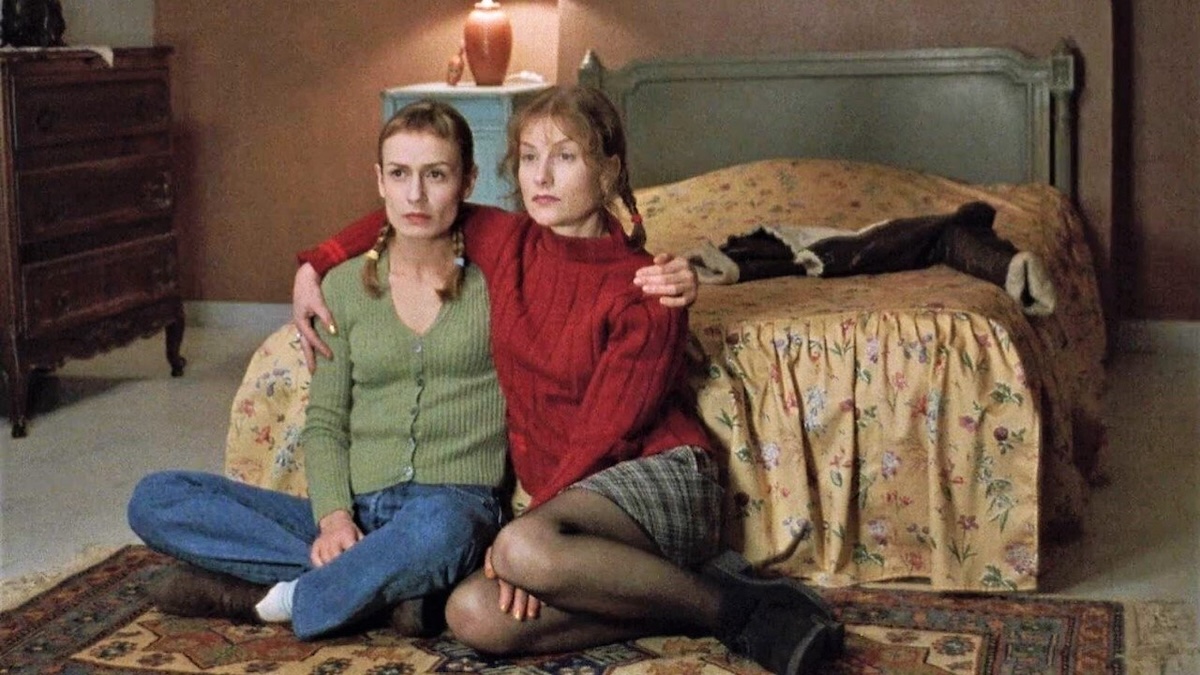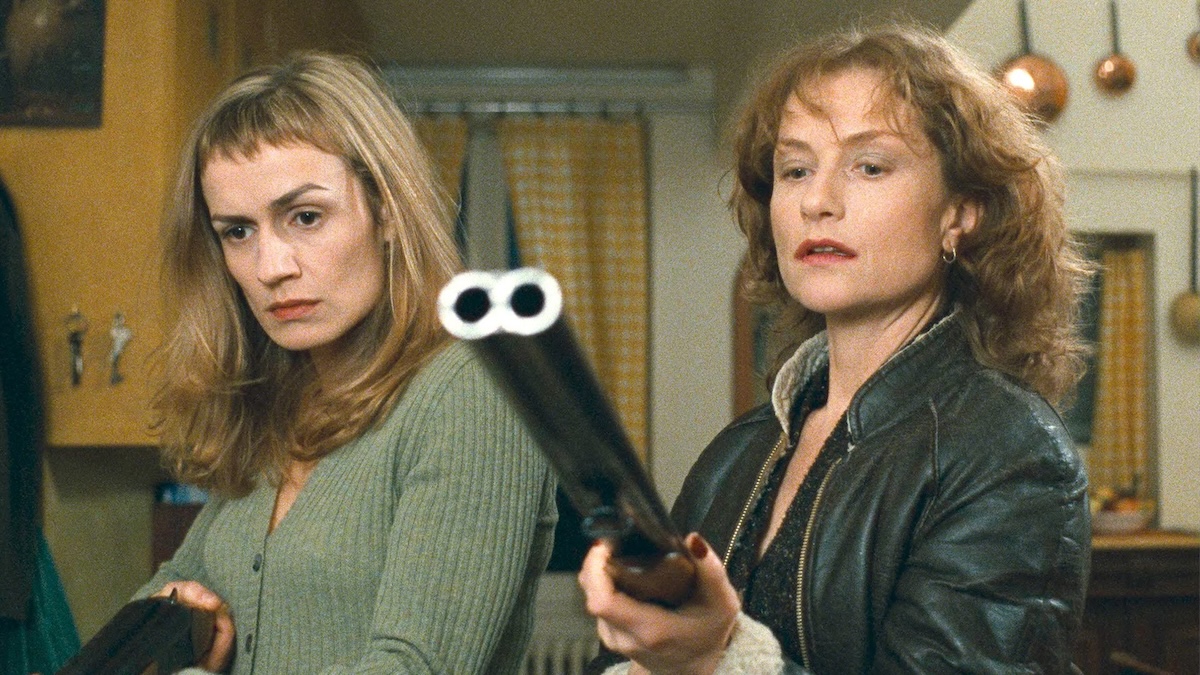LA CÉRÉMONIE (1995)
A newly hired maid for a rich countryside family befriends a post-office clerk who encourages her to rebel against her employers.

A newly hired maid for a rich countryside family befriends a post-office clerk who encourages her to rebel against her employers.

On a first watch, La Cérémonie (aka A Judgement in Stone) is all about the destination, as two strange women, treated like pariahs in their respective worlds in rural France, are drawn together as if by fate, tunnelling down a moral rabbit hole whose potential for darkness feels limitless. On subsequent viewings, Claude Chabrol’s unnerving and highly absorbing psychological thriller becomes a puzzle in interpreting its journey, where the innocuous act of a rich family hiring a maid ends in tragedy.
It’s all written plainly in the opening scene, when art gallery owner Catherine Lelièvre (Jacqueline Bisset) meets with prospective employee Sophie (Sandrine Bonnaire) for an interview to be the Lelièvre family maid. Catherine asks Sophie if she would like some tea; Sophie declines, and Catherine orders another cup anyway. Some of Sophie’s behaviour is odd; she suddenly becomes brusque and cold, then quickly switches to being more amenable. It’s not nerves, exactly. It’s something that runs far deeper than that: a performance of normality, executed well enough to elude most viewers on a first viewing. Catherine doesn’t appear to notice anything, and the interview seems ideal for both parties. Not only does Catherine get a maid to look after her very large country home, Sophie gets a slight pay increase from her previous role in the same field.
But looking back, all the troublesome signs of societal collapse between this bourgeois family and their hired help are hiding in plain sight. Catherine, like the rest of the Lelièvre family, never regards Sophie as a person, allowing an erratic and unstable woman to infiltrate her home by mistaking her for ornamentation. Chabrol is masterful at instilling a sinking feeling in one’s stomach, forming a bottomless cavern which all of these characters just might tumble through. It’s a feeling that lurks beneath the surface layer of everyday behaviour, where Sophie and the family are rarely exceptionally cruel or callous, but simply work within their means to uphold the class distinctions they come to view as sacred, before this seemingly pleasant and deceptively bitter relationship reaches its boiling point.

One knows that a gun has to come into play, with the old-fashioned rifles in the Lelièvre household being referenced in such obvious terms in the first hour that anyone familiar with the concept of Chekhov’s gun will have alarm bells ringing at their mention. In fact, their introduction is over-obvious, with the weapon being referenced repeatedly in lines of dialogue, as if the characters are caught in Haneke’s cruel and subversive meditation on violence in media, Funny Games (1997). The rest of this story isn’t so clear. When Sophie encounters Jeanne (Isabelle Huppert), an eccentric postmistress, there’s nothing to suggest that either of them are capable of malicious thoughts. It won’t take long for the bitterly jealous and vengeful Jeanne to become Sophie’s main influence, with our quiet, insecure, and passive protagonist being unable to strike up a meaningful relationship with her employers, who, despite their good intentions, gradually erode her personhood.
Sophie is highly impressionable, even childlike. She blossoms with Jeanne, tickling her new friend, running like a schoolgirl alongside her, and giggling hysterically at Jeanne’s defiance of social mores. Jeanne is a spark of chaos for Sophie to revel in amidst the order of the Lelièvre home. With the patronising yet well-meaning family, you know where you stand, inspiring deep anger. With this chaotic best friend in tow, there are no limits, or no defined ones, at least. Watching chaos brush up against order produces some nail-biting moments, where Sophie’s livelihood—and the dramatic content of the film—is so inextricably tied to upholding social norms and niceties that any subversion of them is terrifying for the viewer. You are afraid for Sophie, and afraid of what she’s capable of, in equal turn.
La Cérémonie was adapted from the 1977 novel A Judgement in Stone by Ruth Rendell, but its story stems from a much earlier point in the 20th-century, when two sisters, Christine and Léa Papin (both maids), brutally killed their employer’s wife and daughter. At first glance the case begins and ends there, since both sisters immediately confessed to the killings and their acts of brutality seemed too barbaric to warrant any further inquiry. But the sisters invoked great sympathy from many of France’s most prominent intellectuals at the time, given the poor working conditions, endless scrutiny, and physical abuse they endured. Of course, compared to this ill-treatment, the Lelièvre family are bona fide saints.

What makes La Cérémonie so intriguing is that it never presents its characters (aside from Jeanne, who is the flame to Sophie’s powder keg) as being especially evil. In fact, they’re not even that interesting. Don’t get me wrong, they’re fascinating as characters, but as people one would interact with, there’s nothing impressive or remarkable about them. Contrary to what some viewers have surmised based on the family’s actions, they are hardly monsters. Their greatest flaw is their ignorance; even their patronising attitude stems from striving to do good. Catherine offers a pay raise to Sophie compared to her previous employment, while Georges (Jean-Pierre Cassel), her husband, thinks nothing of offering to drive her into town and paying for driving lessons so Sophie can be more independent. Georges’ daughter Melinda (Virginie Ledoyen) is the most sympathetic of the lot, constantly deriding her family for treating Sophie unfairly.
Their actions are hardly cruel, even if Melinda and the rest of the family can’t help being condescending. They are simply unable to recognise that they treat Sophie (and occasionally Jeanne) as if she lacks personhood, whether that’s Catherine’s son Gilles (Valentin Merlet) inquiring about how she looks, Catherine telling Georges that Sophie is too dim to carry out basic tasks, Melinda throwing a dirty handkerchief at Jeanne after it’s handed to her by the postmistress, and Georges’ general lack of pity. They can never recognise their ignorance and folly, let alone glimpse the shadows of darkness lingering in their home because of it, growing wider by the day.
There are the faces of order and chaos, conveyed by the family and Jeanne, respectively, and of passivity and disobedience, dual reactions to the attitudes of this wealthy family from Sophie and Jeanne. The only part missing from this intoxicating, disturbing, darkly humorous puzzle is how Sophie relates to this family, which is where the film is constantly guiding us towards, holding the viewer’s hand as it takes them down this twisted path. Only madness lies ahead, but an ordered kind of madness (if such a contradiction can exist), a single act of vengeance that is both inevitable and impossible to truly understand. Returning to the Papin sisters for a moment, while one can empathise with their struggles and logically deduce that this is what drove them to murder, the grislier aspects of this case can hardly be reckoned with, let alone justified.

La Cérémonie knows there are limits to understanding. Even from the very outset the film feels like a mystery steeped in despair and drowning in hatred that’s just waiting to be unleashed. It’s unbearably tense and remarkably patient. It doesn’t just allow us to sit within its scenes and feel their viscerally uncomfortable ambience, it relishes this opportunity. Chabrol is a clever sadist, savouring the twisted appeal of a tense interaction or the sense that brutality is inevitable. He isn’t interested in constant depravity being depicted onscreen, recognising that it’s the bleakness of these characters’ psyches that must be explored to their fullest extent before any violence can be deployed.
For all their wealth and interest in ‘high culture’, the Lelièvre family are easy to decipher. It’s Jeanne and Sophie that are attuned to an unfamiliar rhythm, which gradually thuds in symbiotic unison as their relationship deepens. Even when the plot’s early conflicts appear quiet, at all times La Cérémonie‘s buried emotions continue to deepen. The family’s dismay over Sophie’s increasingly lax attitude spills forth in conversations when she’s in another room, though still able to hear them if she wishes. She has no such outlet for complaints before meeting Jeanne, confined to a bedroom at the top of this house, unable to drive away from it, mesmerised by the television screen before her. She sits and watches, never knowing the kinds of urgent realisations that must be gleaned from her life, just as we watch, mesmerised by this wonderfully twisted psychodrama, stuck as we are with our lot, acting within our means and declaring it just because it comes so naturally to us. La Cérémonie asks the viewer to empathise with both the Lelièvre family and Sophie, challenges preconceived biases towards either group, and reminds us of our complicity in this emotionally charged, tense dramatic playground.
FRANCE • GERMANY | 1995 | 112 MINUTES | 1.66:1 | COLOUR | FRENCH


director: Claude Chabrol.
writers: Claude Chabrol & Caroline Eliacheff (based on the novel ‘A Judgement in Stone’ by Ruth Rendell).
starring: Sandrine Bonnaire, Isabelle Huppert, Jacqueline Bisset, Jean-Pierre Cassel, Virginie Ledoyen, Valentin Merlet & Jean-François Perrier.
